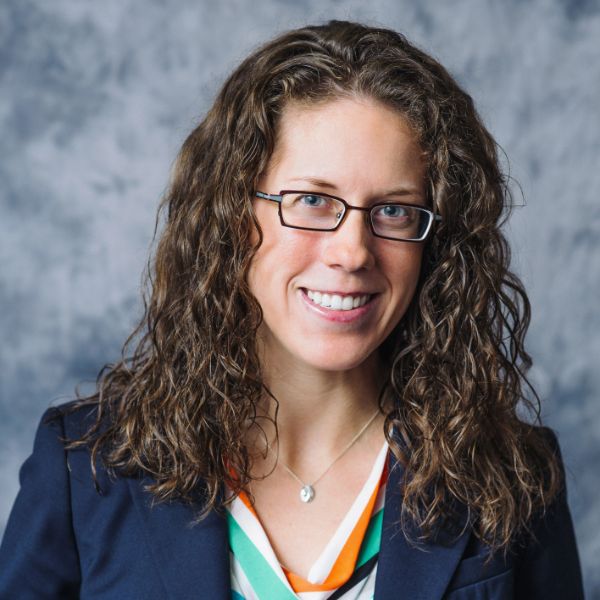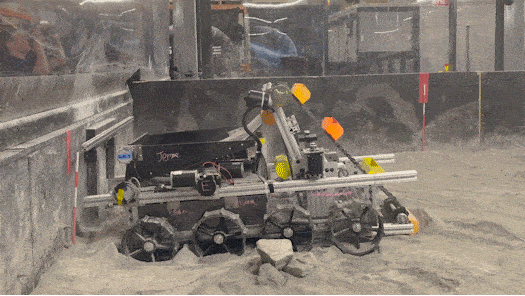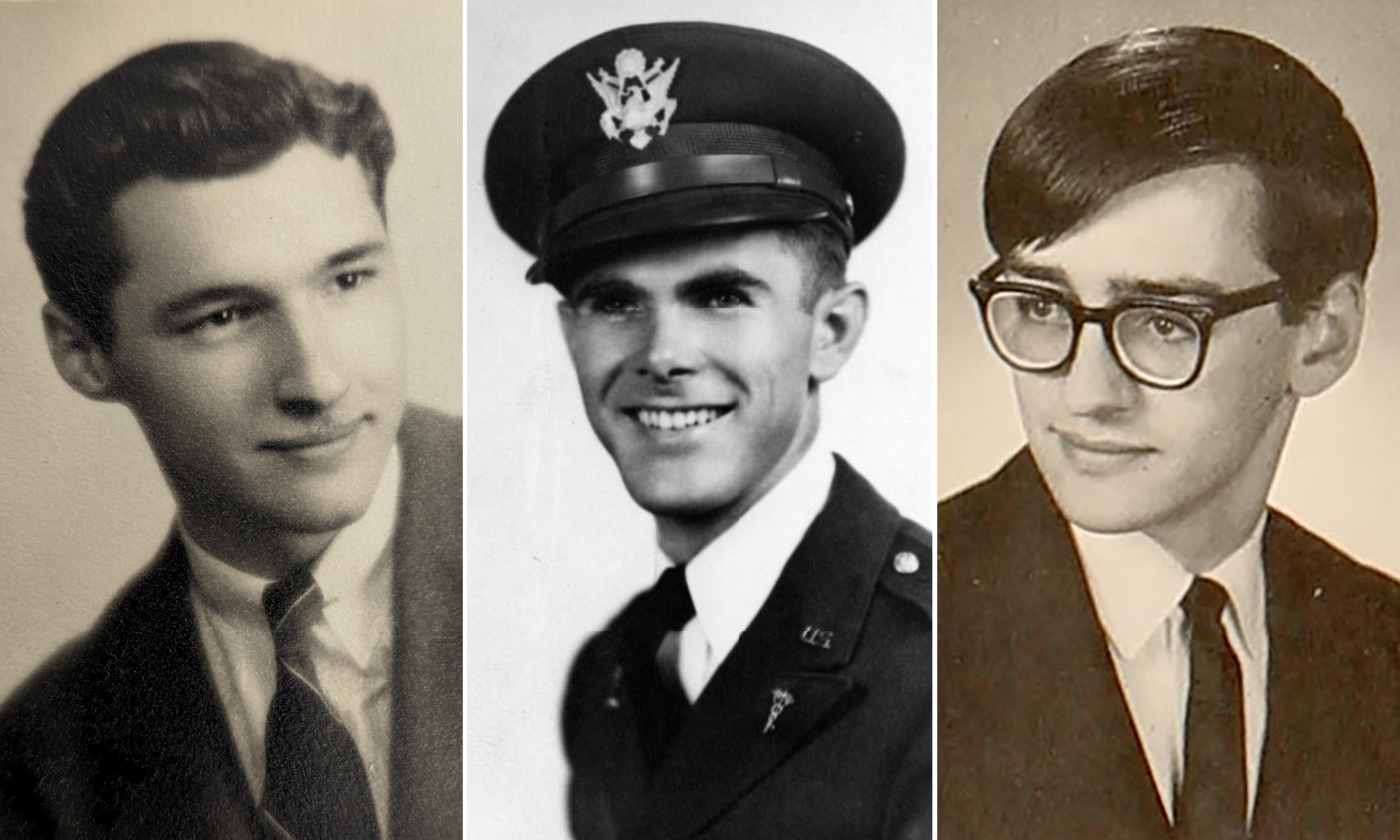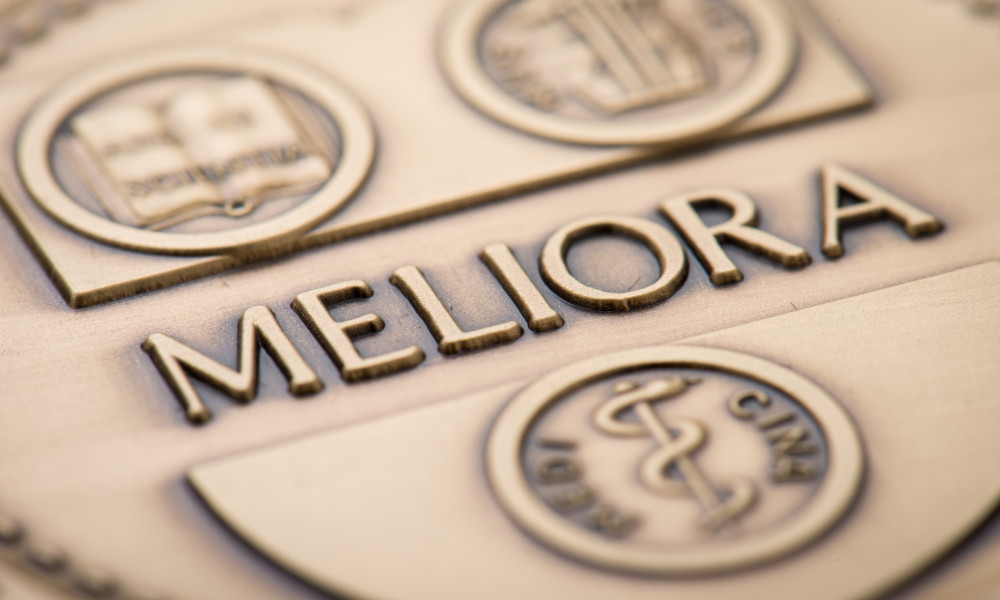
It is a truth universally acknowledged that climate change will have an impact on humanity. As a double major in English literature and anthropology, Antoinette Nguyen ’21 is keenly aware of this inconvenient truth. Nguyen is also a Rochester Early Medical Scholar, heading to medical school after she graduates, and as someone who wants to dedicate her professional life to policy work and community engagement, she jumped at the chance to become one of the University of Rochester’s inaugural Community-Engaged Summer Sustainability Fellows.
The summer fellowship is supported by the College’s undergraduate sustainability program and gives students an opportunity to work on a timely local issue related to environmental sustainability. This summer, four students are working with Katrina Smith Korfmacher, associate professor of environmental medicine, to analyze health equity aspects of the City of Rochester’s ongoing Climate Vulnerability Assessment (CVA). Korfmacher also directs the Environmental Health Sciences Center’s Community Outreach and Engagement Core (COEC), which works to address environmental health problems in the community.
In addition to Nguyen, three other undergraduate students were selected as this year’s Summer Sustainability Fellows: Ivana-re Baldie ’21, a biochemistry major who is pre-med; Nicole Franki ’20, an environmental studies and political science double major; and Rebecca Saubermann ’20, an environmental health and financial analytics double major.
Climate change survey says…
On a hot Tuesday in July, the sustainability fellows set up a table at the Rochester Public Market. They were there to survey Rochester city residents to identify who will be most affected—and how they will be affected—by climate change in the coming years.
“The project started organically after meeting with the stakeholders for the City of Rochester’s climate vulnerability assessment,” says Saubermann. In 2016, New York State awarded the city a Climate Smart Communities grant to undertake a climate vulnerability assessment as a way to help set goals and develop climate adaptation plans for the city. The team was given the opportunity to supply additional information and analysis about health equity issues to support the work being done by the city and its consultants.
Based on background research and data from the local government and area organizations, the team helped identify four key environmental health determinants that might be affected by climate change in Rochester:
- Heat waves
- Extreme storm events
- Air quality and pollution
- Ecological effects (e.g., changes in pollen or vector-borne diseases, which are human illnesses caused by mosquitoes, ticks, and other infected organisms)
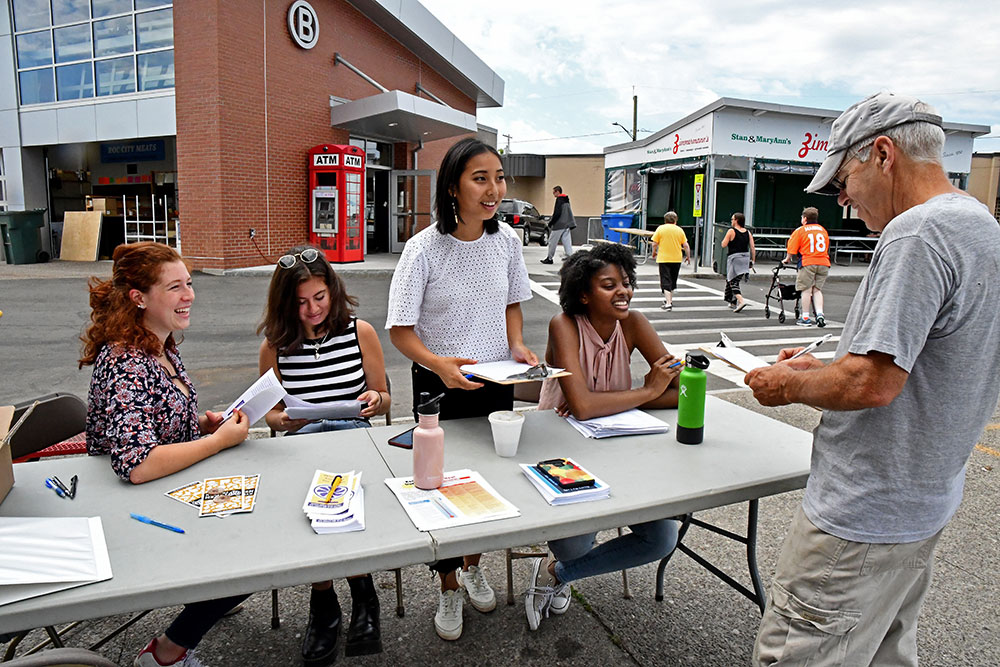
As a result of this foundational work, the fellows decided to create and administer a public survey. Farmers markets, like the Rochester Public Market and Westside Farmers Market, gave them a chance to get a representative sampling of residents’ responses to questions like the following:
- Which of the following do you have in your residence? (Please check all that apply.)
- Central air conditioning
- Wall or room air condition unit
- Electric fan(s) or ceiling fan(s)
- Back-up power or generator
- None of the above
- Where would you be most likely to go if your power was out and you needed to cool off during a heat wave or heat wave emergency?
- Do you consider yourself at any increased risk of heat-related illness due to your age, work, living conditions or a medical or mental health condition?
“It’s all interconnected.”
The next step is to compile and analyze the data. “We’re looking at the numbers to inform our policy recommendations for the city,” says Saubermann. “For example, I’ve been working with the initial data and learned that almost half the people we’ve surveyed so far don’t have central air conditioning. During the next heat wave, how are these people going to cool down?”
“One of the recommendations might be for people to go to rec centers to cool off,” says Baldie, who is focusing on how air quality affects people’s health for this project. But such a recommendation assumes people know about these centers and have a way to get there. And even though air conditioners themselves can contribute to climate change, when looking at health measures, Baldie notes that it’s preferable for vulnerable populations—people with respiratory illnesses, children, the elderly—to have access to air conditioning.
Nguyen, meanwhile, is concerned about the knock-on effects of climate change in Rochester specifically. While Rochesterians might not seemingly have to worry about rising sea levels and massive wildfires, “the increasing heat leads to other issues, such as exacerbated chronic illnesses and electricity demands. What happens if the infrastructure isn’t in place to address these issues?”
“If I’ve learned anything from this program,” says Saubermann, “it’s that every single problem is actually ten different problems—and then ten more. It’s all interconnected.”

Connecting with the Rochester community—and each other
The last step for the Summer Sustainability Fellows this year is a final presentation of their findings and recommendations to city officials. All four agree that the highlight of their experience has been working with the local government and community members. “They all care about the environment and want to do right by the city, so that was really encouraging to see,” says Franki.
The fellows credit their advisor, Korfmacher, who “has done an amazing job coaching us, guiding us, brainstorming with us, and helping us with contacts and connections. She opened a lot of doors,” says Saubermann. “She made it a priority for us to not just sit in an office but instead to get out into the community,” Franki says.
Meanwhile, Korfmacher has been “delighted with how the students stepped up to my challenge to them to organize themselves, support each other, and divide up their work,” she says. “They have been really articulate about learning more about Rochester, each other, and how to be useful in solving real problems.”

